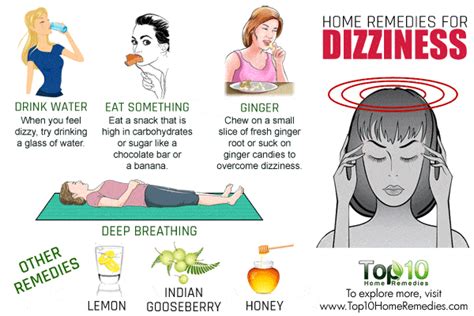How to Stop Dizziness: Effective Remedies and When to See a Doctor
Dizziness, that unsettling feeling of lightheadedness or imbalance, can significantly disrupt your daily life. Understanding its causes and implementing effective coping mechanisms is crucial for regaining your equilibrium. This comprehensive guide explores various methods to stop dizziness, highlighting when professional medical attention is necessary.
Understanding the Root Causes of Dizziness
Before diving into solutions, it's important to understand what might be causing your dizziness. Several factors can contribute, including:
- Dehydration: A simple lack of fluids can trigger dizziness. Staying hydrated is paramount.
- Low Blood Sugar: Hypoglycemia can lead to lightheadedness. Regular meals and snacks can help prevent this.
- Medication Side Effects: Certain medications list dizziness as a side effect. Consult your doctor if you suspect this is the case.
- Inner Ear Problems: Vertigo, a type of dizziness often associated with inner ear issues, can be quite debilitating. Seek medical attention for persistent vertigo.
- Anxiety and Panic Attacks: These can induce dizziness as a physical symptom. Stress management techniques are beneficial.
- Postural Orthostatic Tachycardia Syndrome (POTS): This condition causes a rapid increase in heart rate when standing up. Medical diagnosis and treatment are essential.
- Migraines: Some individuals experience dizziness as an aura or symptom preceding a migraine. Managing migraines can help reduce dizziness.
Effective Remedies for Dizziness
While professional medical advice is crucial for persistent or severe dizziness, several remedies can provide temporary relief:
Immediate Relief Strategies
- Hydration: Drink plenty of water or electrolyte-rich beverages.
- Lie Down: Resting in a quiet, dark room can often alleviate mild dizziness.
- Fresh Air: Stepping outside for some fresh air can sometimes help.
- Avoid Sudden Movements: Gentle movements are key to preventing worsening dizziness.
- Focus on a Fixed Point: This can help reduce the feeling of spinning.
Lifestyle Changes for Long-Term Relief
- Dietary Adjustments: Maintain a balanced diet rich in fruits, vegetables, and whole grains.
- Regular Exercise: Gentle exercise, such as walking or yoga, can improve balance and circulation.
- Stress Reduction Techniques: Practice relaxation techniques like deep breathing, meditation, or yoga to manage stress.
- Sufficient Sleep: Aim for 7-8 hours of quality sleep per night.
When to Seek Medical Attention
Don't hesitate to consult a doctor if your dizziness:
- Is severe or persistent.
- Is accompanied by other symptoms, such as nausea, vomiting, vision changes, or numbness.
- Is sudden in onset.
- Is recurrent.
- Interferes with your daily activities.
Conclusion: Taking Control of Dizziness
Dizziness can be a frustrating and concerning symptom. By understanding its potential causes and implementing the appropriate strategies, you can effectively manage it and improve your overall well-being. Remember that seeking professional medical advice is crucial when dizziness is severe, persistent, or accompanied by other symptoms. Prioritizing hydration, managing stress, and maintaining a healthy lifestyle are essential steps in preventing and alleviating dizziness.
